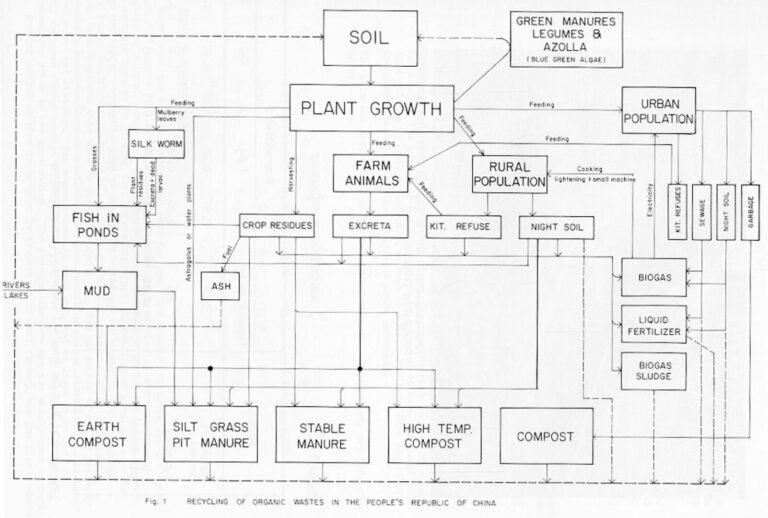Human waste, often regarded as a source of disease, disgust and impurity, is being redefined as “humanure” by environmental activists, serving as a solution to land degradation in the midst of the anthropogenic crisis. Although a circular view that humans are not merely consumers of food but the producers for healthy soils has arisen, it can easily be overlooked. In China, the beneficial use of human waste, or “nightsoil,” for food production has a long history. Drawing from my mother’s intimate experience with humanure during the socialist era in China, I explore the metabolic politics of humans and soils. This politics reveals a unique cultural economy that was once constituted to complete a cyclic change from food production to consumption, intertwining the valuation method of humanure, toilet technologies, and the rural–urban exchange. I introduce the context of metabolic disturbance to rethink environmental sustainability in relation to the dynamics of our farming practice and sanitation/disposal system in China and beyond. I propose alternative ways to value human waste, aiming to nourish our civic imagination of food by transforming our metabolic relationship with soil, agriculture, food, and waste.
Keyword: wastewater
Wasted: Wastewater, Hygiene Theatrics, and Contaminated Imaginaries
This collaborative essay takes up three pungent streams of wastewater to address how environments, politics, communities, and power are mediated by liquid waste: urine, feces, and everything else recklessly flushed down toilets, washed down drains, stored in pits, and dumped in the ocean. “Wasted” looks to the multi-scalar worlds of wastewater by centering waste sites and COVID-19 concerns regarding wastewater virality. First, our tour of Santa Barbara’s El Estero Water Resource Center brings us to the variegated, embodied, multi-sensory, and multispecies communities of wastewater. El Estero provides an odoriferous infrastructural current through which we follow wastewater and the socialites and environments it mediates on California’s Central Coast. We then move to the ways wastewater has been interwoven with global pandemic fears to address how human waste retains infectious COVID-19 viral material even after it has been flushed away. COVID-19, in other words, haunts the infrastructural ports through which wastewater is funneled. We conclude with wastewater’s epochal effects within the Anthropocene. Throughout, we offer the term “hygiene theatrics” to identify how the performance of hygiene, cleanliness, and purity rely on dichotomous constructions of dirtiness and cleanliness that reinforce structural power dynamics including racism and homophobia. “Wasted” is a collaborative feminist and queer experiment in form and methodology that explores wastewater as both a material reality and a theoretical apparatus that is informed by and contributes to the environmental humanities, infrastructure studies, and feminist and queer science studies.

